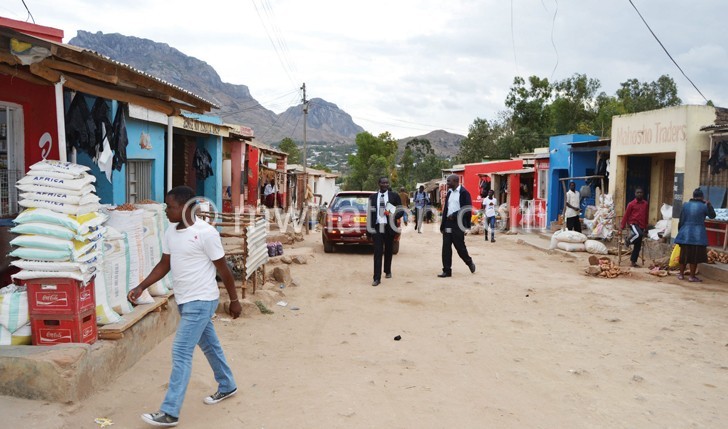Govt fails to enforce law on foreign retail traders
Immigration Department has attributed the presence of asylum seekers in the country’s towns and rural areas to the location of Dzaleka in Dowa, which is near the capital city.
In an interview, yesterday, on concerns that foreigners are crowding out locals in retail businesses in towns and rural areas, Immigration Department spokesperson Joseph Chauwa said, in the first place it is wrong for the asylum seekers to be found in places other than the designated refurgee camps.

“Refugees are not supposed to do business anywhere in the country; they are supposed to be in camps,” said Chauwa, adding that refugees come here to seek protection, not to do business.
“They are not allowed to do business. But the main problem is that government allocated Dzaleka Refugee Camp at the centre of the country [Dowa], which helps the refugees to move easily to different towns [and cities] to do illegal businesses. Refugee camps are not supposed to be in a country’s central districts,” he said.
Chauwa echoed sentiments earlier raised by Ministry of Industry and Trade spokesperson Wiskes Mkombezi that inadequate funding from government cripples the department’s efforts to flush out illegal foreign traders.
In an interview of Friday, Mkombezi said it is illegal for foreigners to operate retail trade in towns and rural areas.
“According to the Business Licensing Act; and the Business Registration Act, it is illegal for foreigners to do their retail business in townships and rural areas. They are supposed to do their businesses in cities, with a capital of not less than $250 000 (about K179 250 000),” he said.
According to Mkombezi, hotspot districts where foreigners are doing retail business include Nkhotakota, Kasungu, Balaka, Mchinji, Machinga, Salima Nsanje Karonga and Lilongwe.
In May 2015, then principal secretary of Industry and Trade, Cliff Chiunda told the press that effective July 1 2015 the Ministry would effect the new Business Licensing Act to flush out foreigners from plying retail trading in rural areas.
He said foreigners whose core activity was retail trading should operate in central business districts (CBDs) of the country’s cities and municipalities.
But, according to Nation on Sunday findings this week, many foreigners are freely operating retail businesses in the country’s townships and rural areas, some of them without business licences.
Blantyre City Council public relations manager Anthony Kasunda said all business licences are issued by Ministry of Industry and Trade.
“The council is not mandated to issue business licences, but it only issues food licences and market fees. But that does not apply to shops,” he said.
One Malawian retailer in Bangwe, Blantyre, Andrew Nthikira, bemoaned government’s failure to remove foreigners from operating retail shops in townships and rural areas, where he said they are crowding out locals.
He claimed that some of the foreigners are asylum seekers, who sell, at lower prices, products they receive at refugee camps.
Commenting on the matter, in an interview yesterday, Principal Secretary for Ministry of Home Affairs and Internal Security Samuel Madula said he is aware that some refugees are doing businesses in rural areas, but he said lack of resources in the ministry is fuelling the vice.
“We know it is happening. For example, some are at Bilira in Ntcheu, which is illegal. But the problem is that the department has no vehicles for repatriation. These people are compromising Malawians’ small scale business. We need to get rid of them,” said Madula.





